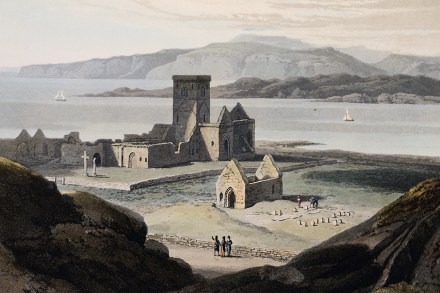Graham Robb: The Discovery of Britain
40 min listen
Sam Leith’s guest this week is Graham Robb. In his new book The Discovery of Britain: An Accidental History, Graham takes us on a time-travelling bicycle tour of the island’s history. They discuss how Graham weaves together personal memories with geography and history, his ‘major cartographic scoop’ which unlocks Iron Age Britain and contemporary debates about national identity. Graham also has a discovery of interest for those who hold out hope that King Arthur really existed. Produced by Patrick Gibbons and James Lewis.










